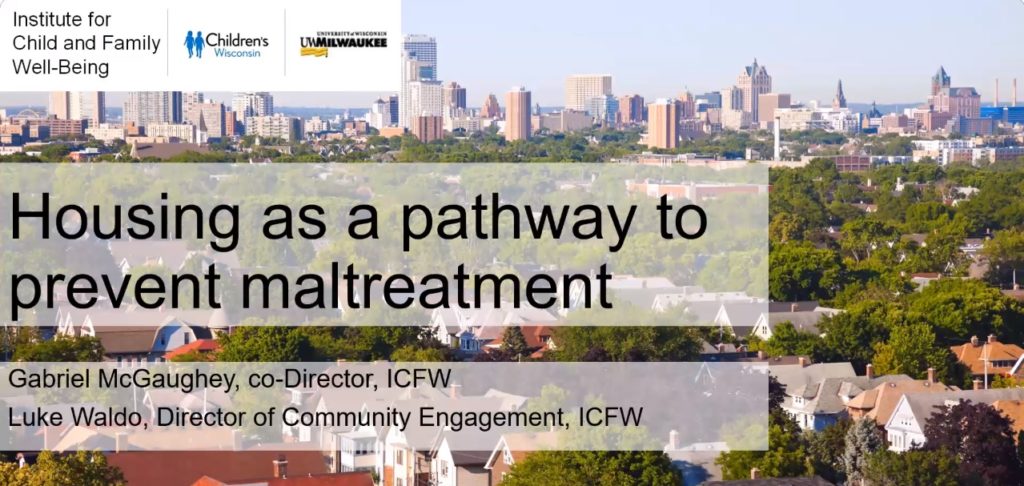 Stable housing provides a foundation for health, well-being, and prosperity for children, families, and communities. Stable housing can positively affect a broad spectrum of outcomes for children and families, including academic performance, employment, physical, and mental health. Threats to stable and healthy housing are complex and intertwined with systemic and interpersonal factors.
Stable housing provides a foundation for health, well-being, and prosperity for children, families, and communities. Stable housing can positively affect a broad spectrum of outcomes for children and families, including academic performance, employment, physical, and mental health. Threats to stable and healthy housing are complex and intertwined with systemic and interpersonal factors.
Families experiencing housing instability face increased risk of their children being involved in the child welfare system . 81% of families with children entering care identified recent histories of housing instability, including crowding, homelessness, and evictions. Housing instability is also linked to delays in reunification, while placement in foster care is also connected to youth homelessness. Housing Opportunities Made to Enhance Stability (HOMES) is a systemic intervention focused on building new relationships, sharing ideas and knowledge, and starting new collaborations between housing and child welfare partners in the community.
In this webinar from July 30, 2020, ICFW team members Gabe McGaughey and Luke Waldo reviewed:
- The link between housing and child maltreatment
- The impact of stress and adverse childhood experiences (ACEs) have on executive functioning,
- The increased risk of housing instability in the age of COVID
- Systems change framework to inform strategy development and evaluation.
- Lessons learned from HOMES that can be applied to other system change efforts
Listen to the recorded webinar here.
Related Resources
From the ICFW:
Supporting Safe, Stable, and Healthy Housing
Housing Opportunities Made to Enhance Stability (HOMES) initiative
Infographic: Housing & Child Welfare
Infographic: Housing & Child Health
Other resources:
Evaluating Systems Change Results – Mark Cabaj

